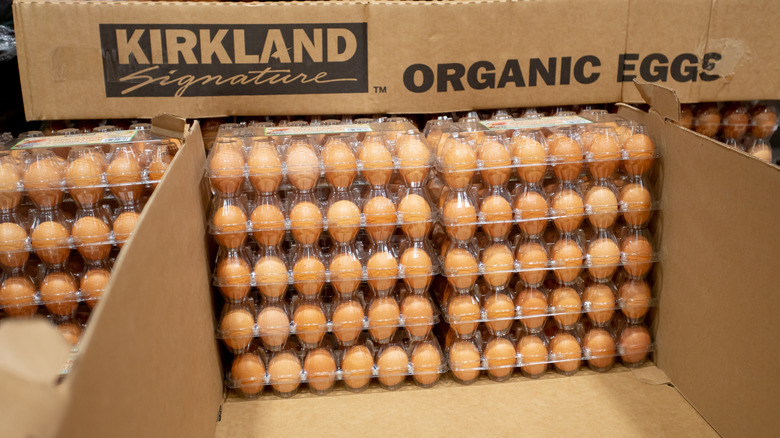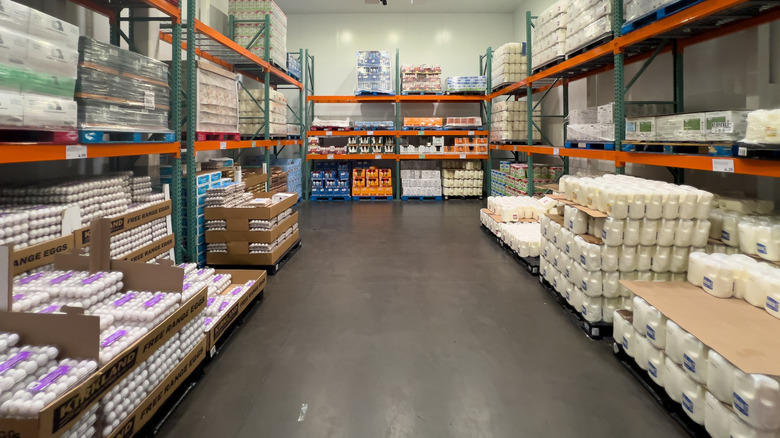Costco Kirkland Signature Organic Eggs Are Recalled. Here's What You Need To Know
On November 27, 2024, Handsome Brook Farms issued a recall on 10,800 retail units of Kirkland Signature Organic Pasture Raised 24-Count Eggs, which were being sold in 25 Costco locations in Alabama, Georgia, North Carolina, South Carolina, and Tennessee due to a potential Salmonella contamination. This is the latest recall to hit Costco, following similar concerns with Kirkland-brand butter and smoked salmon.
The eggs in question can be identified by the Universal Product Code 9661910680, which appears beneath the bar code on the bottom-right corner of the label. According to the company's press release via the FDA, the recall is specific to cartons of eggs with the Julian code 327 and a "Use By" date of January 5, 2025, which can be found next to each other on the side of the plastic carton.
The stated reason for the recall is the inclusion of eggs not intended for retail distribution that may be contaminated with Salmonella, and the company's press release emphasizes that it has taken measures both in terms of supply chain security and training protocols to ensure this doesn't happen again. There have been no reported illnesses from this recall, but it's important to ensure the disposal of any impacted products so as to prevent infections at home.
What to do with potentially affected eggs
If you believe your eggs have been impacted by this recall, you should either bring the cartons back to your local Costco for a full refund or else dispose of the product immediately. For those wondering what happens when a grocery store recalls food, the impacted products will be promptly thrown away and sent to a landfill. Shoppers in affected regions can contact Handsome Brook Farms by phone at 646-733-4532 during East coast business hours or by email at recall@hbfeggs.com if they have questions or concerns about the recall.
Salmonella is an infection that can cause fever, diarrhea, and vomiting among other symptoms within 8 to 72 hours after exposure. A majority of healthy people can recover within a few days without medical treatment by making sure to stay well-hydrated and rested, but young or elderly people or those with weakened immune systems may want to contact a healthcare provider if symptoms last for more than a few days or if there is a high fever or bloody stool. The FDA estimates that there are 1.35 million cases of Salmonella each year in America, making it the country's second-leading cause of food-borne illness after the norovirus.


